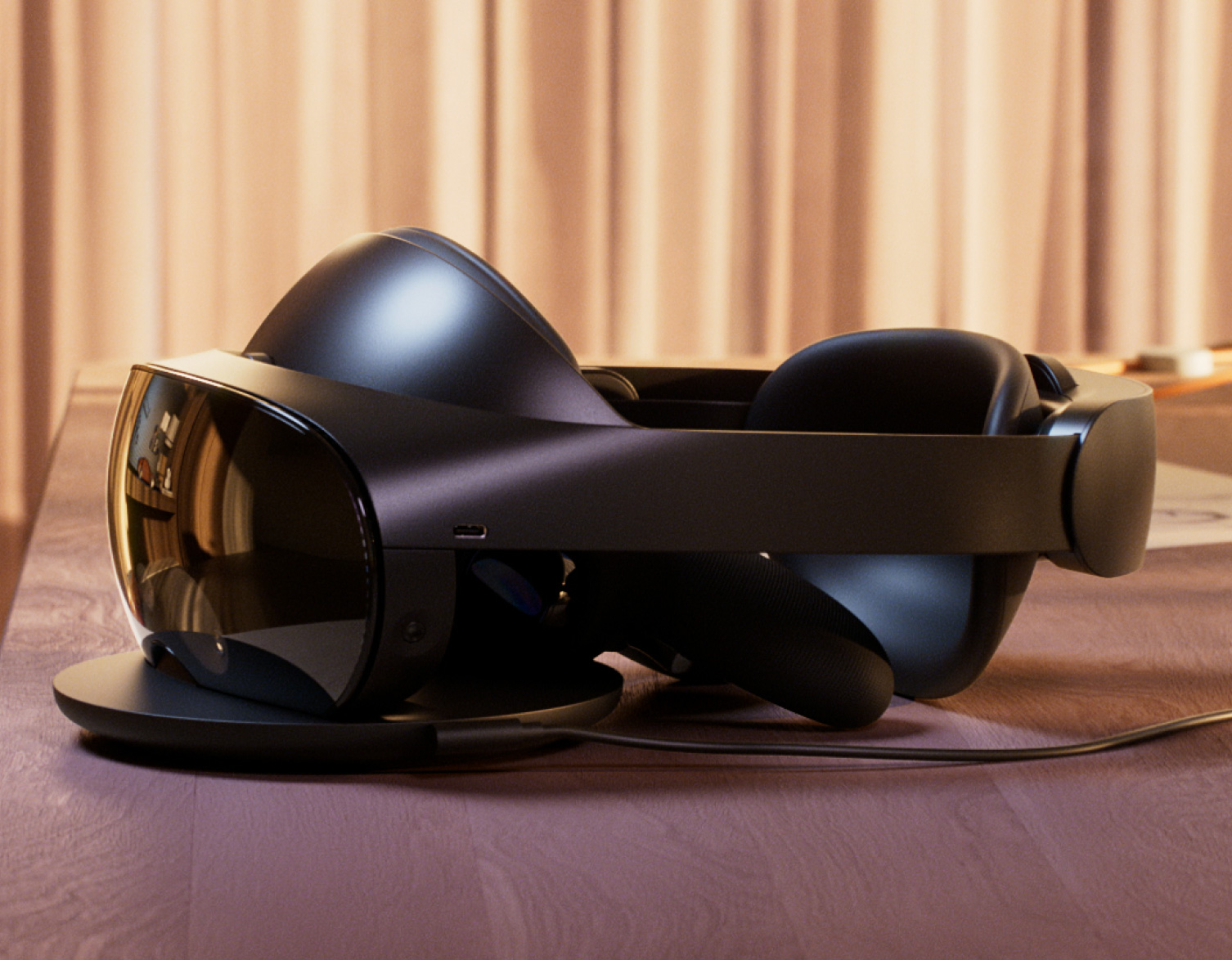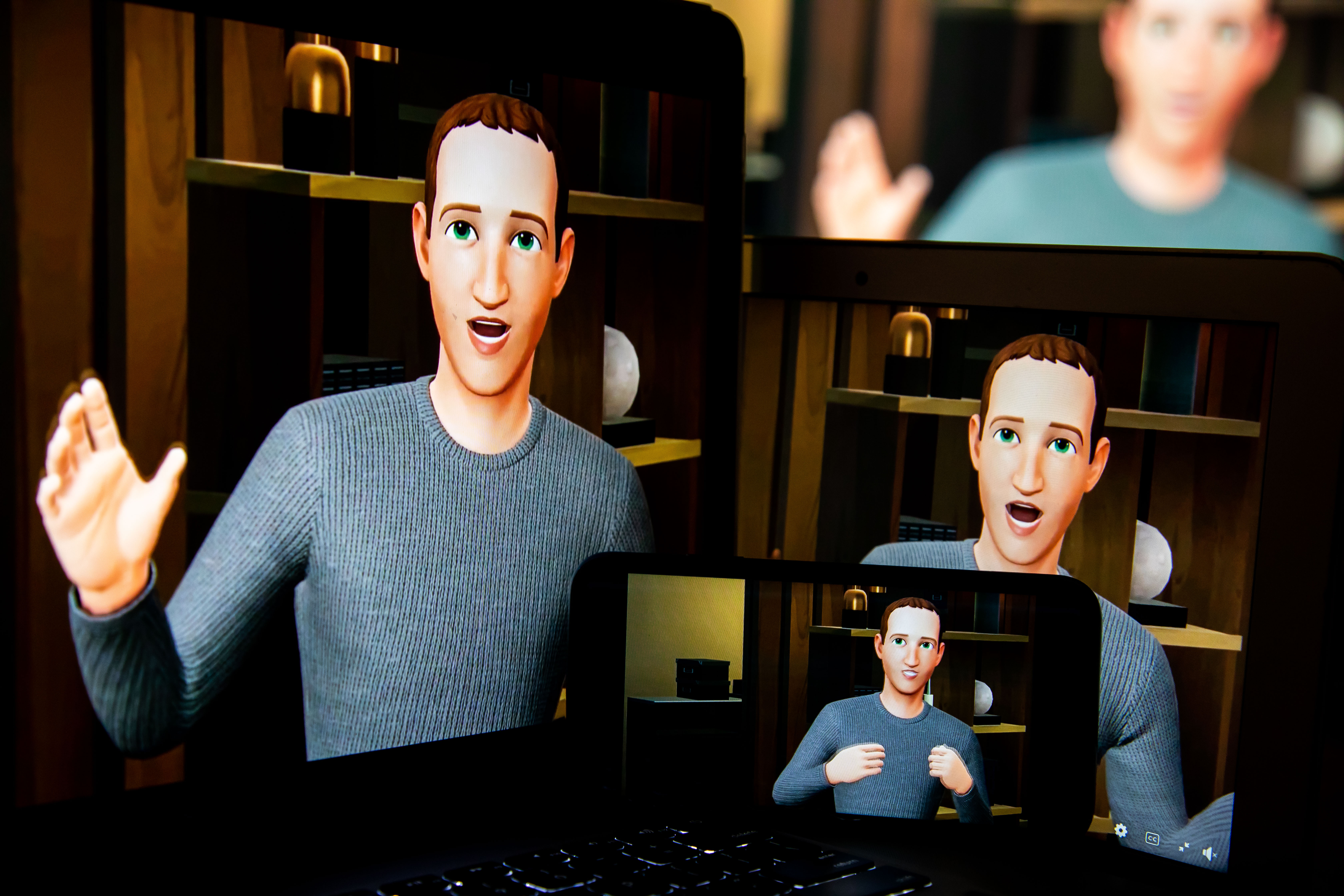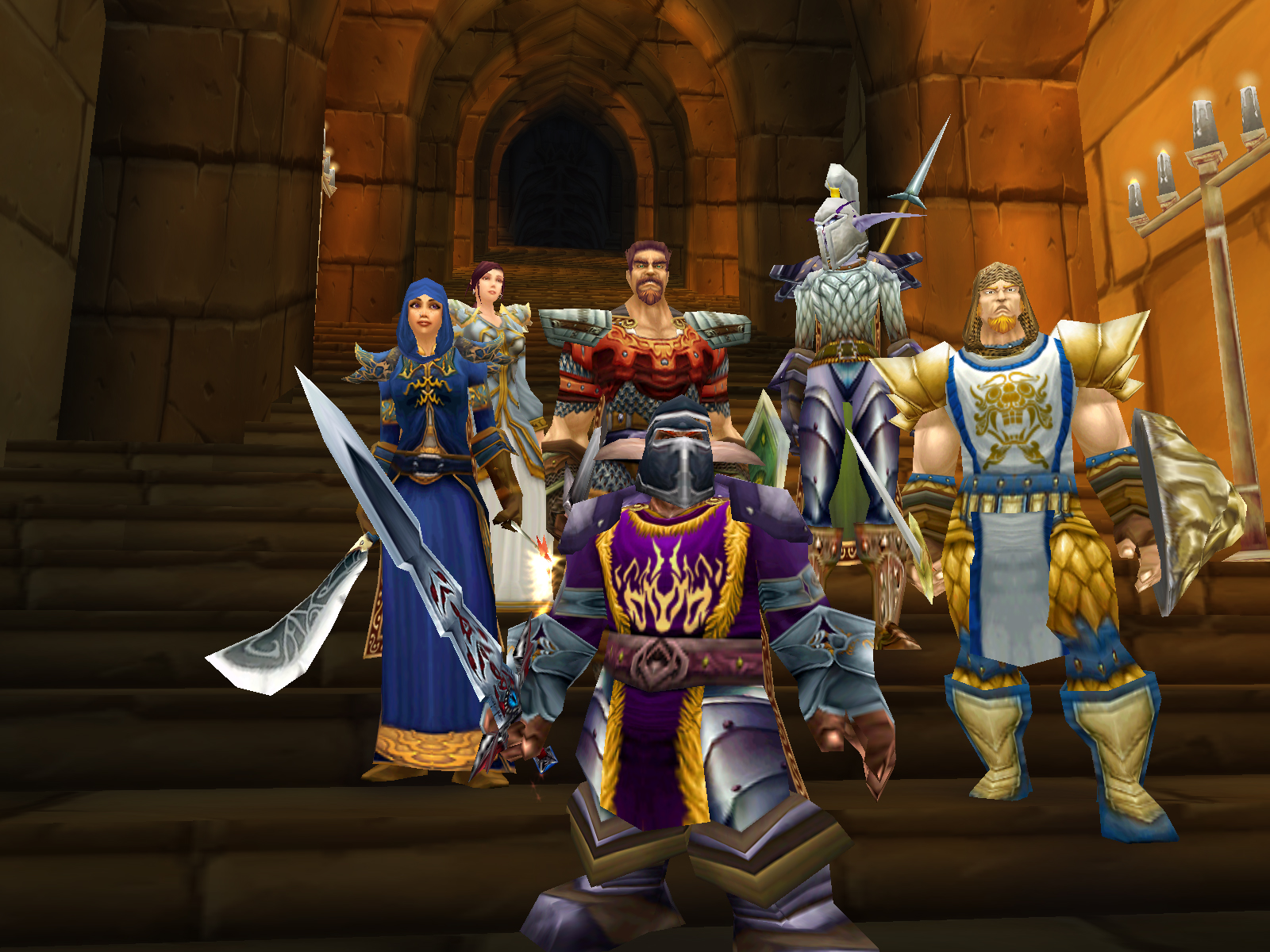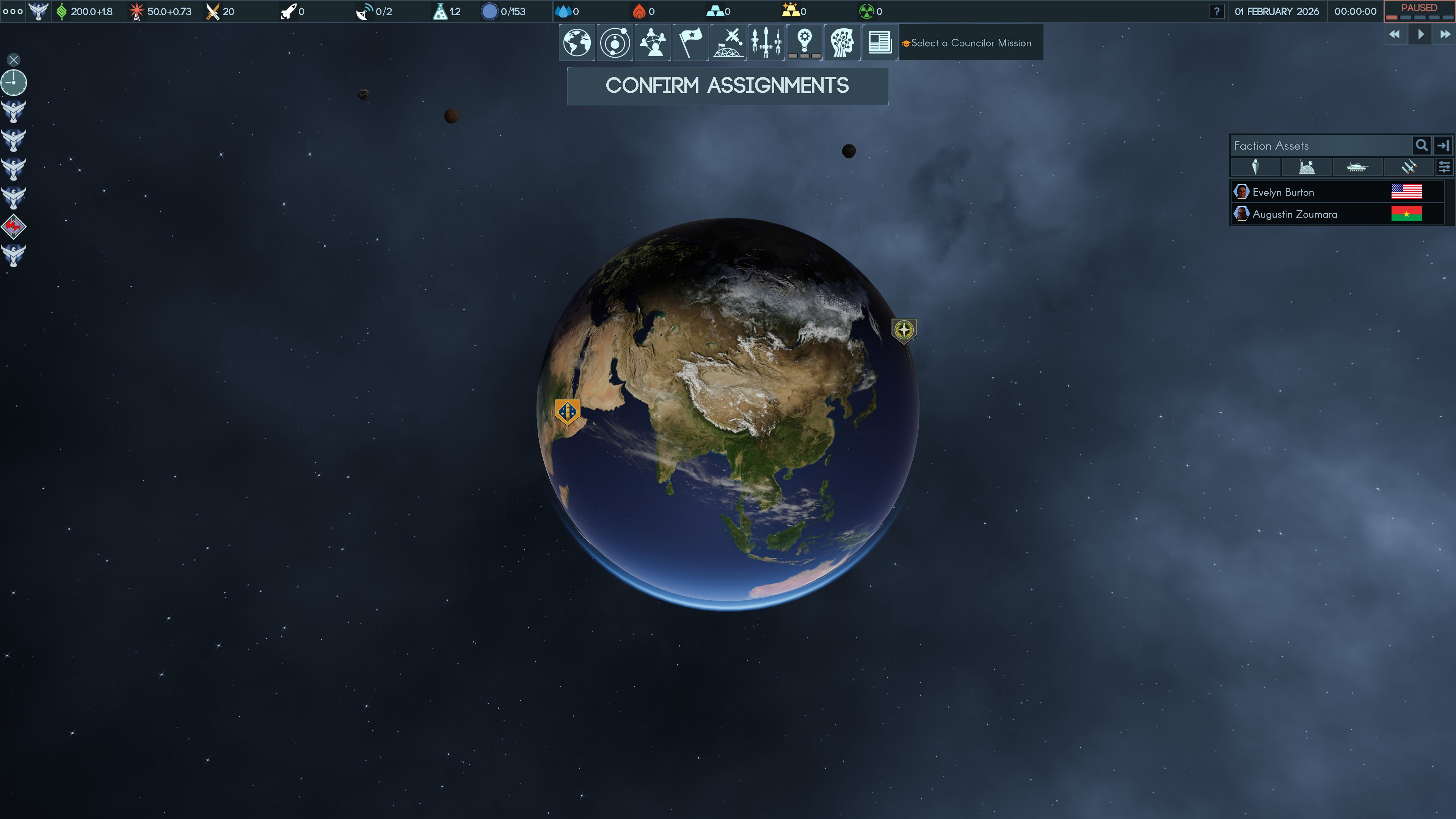Tech companies say the metaverse is coming, but PC gamers know it’s already been here for years
Zuckerberg doesn't realise how behind the times he truly is.

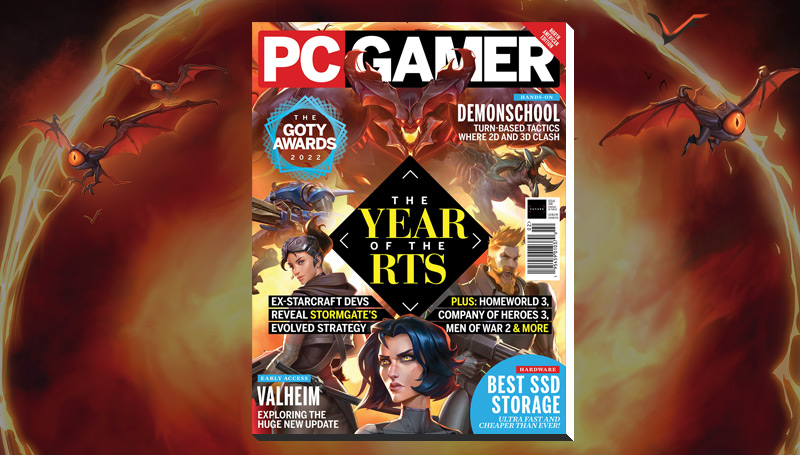
This article first appeared in PC Gamer magazine issue 378 in December 2022, as part of our Tech Report series. Every month we explore and explain the latest technological advances in computing—from the wonderful to the truly weird—with help from the scientists, researchers, and engineers making it all happen.
It's been over a year now since Mark Zuckerberg announced that Facebook was now called Meta, told us of a brave new vision for interoperable, connected, and immersive 3D worlds where we could do everything from gaming to socialising and productivity tasks, then showed us a nightmarish hybrid of a permanent lockdown and the Mii Channel.
The metaverse had been trending prior to that, bandied around by tech entrepreneurs and industry soothsayers, but it was at that moment during the Facebook Connect conference that the world really took notice. If a company with the profile and the resources of Facebook—the sixth biggest company in the world by market capitalisation at the time—was getting behind it this much, we should probably start paying attention. That was the thinking of 2021.
Just over a year later, Meta's watched more than half its company value evaporate. It's not even in the top 30 largest companies by market cap now. Zuckerberg himself watched his value diminish by over $700bn. Meta's own metaverse, Horizon Worlds, attracts 200,000 active monthly users, a headcount considerably less than the 500,000 the company had reportedly hoped to attract in its first year.
It's hard to imagine a worse start for a company who wants to own the metaverse, and for us to spend all our time there. One can be permitted a sliver of schadenfreude in watching a man who's taken such a laissez-faire approach to our privacy data get it wrong, but the metaverse's fortunes aren't tied to Meta. Zuckerberg's specific vision has thus far failed because of the obvious issues right there at the announcement—that Horizon Worlds' avatars look startlingly basic. That there isn't actually much to do in there yet. That the tech entry point is VR, an expensive and uncomfortable platform that's also failed to find a mass market audience in the eight years since Facebook bought Oculus.
The metaverse, though, is something else. Something bigger, not tethered to VR, and not linked to a particular company. It's defined most clearly by writer Matthew Ball, former global head of strategy at Amazon Studios, who outlines seven tenets.
Ball's vision of the metaverse is a persistent, synchronous and live space, without any cap to concurrent users, which hosts a fully functioning economy, offers unprecedented interoperability of data and is populated by content made by a wide range of creators. No mention of VR goggles, legless avatars, or working at a pretend desk in a dystopian future there.
But what's striking about Ball's definition of the metaverse – widely acknowledged as the best thus far—is how much it reads like an early design doc for World of Warcraft. If this is the future, we're way ahead of the curve in PC gaming.
Keep up to date with the most important stories and the best deals, as picked by the PC Gamer team.
Persistent, always-on worlds with massive player numbers have been central to our experience since Ultima Online. Modding has transformed games from auteured, closed experiences to platforming hosting the imaginative output of thousands—we only need to look at how far Half-Life or Skyrim have been guided away from their original release form by UGC for evidence of that. EVE has shown us how an entirely player-regulated economy can function and sustain itself.
More recently, Minecraft and Roblox have blurred the line between game and platform. Under the banner of these two games, universes of experiences await, with little in common with each other, other than blocks. And Fortnite, the footballer's favourite, has smashed IPs together, mimicked high street drop culture with its limited run brand collabs, and hosted virtual concerts attended by millions.
What we don't currently have in the PC gaming landscape is interoperability—that is, the power to take a gun skin we earned in PUBG and use it in Modern Warfare 2. Our virtual property remains in the closed ecosystem in which we unlocked, bought or earned it. And here's the thing: that's absolutely fine.
Never once, in over 15 years in the games industry, has this writer heard somebody lamenting that they couldn't carry over inventory items from one IP to another. If the desire for interoperability had been there among the ranks, the games industry would have met it by now. But it hasn't, so it didn't.
And that sums up the metaverse's biggest challenge, particularly among PC gamers: it's not solving a problem. Our frustrations with our chosen pastime are about increasingly predatory market practices, insidious payment models, bloated development budgets getting in the way of innovation. We're not asking for a centralised DLC economy. We're perfectly happy to let our chosen MMO exist in one corner of our life, and for our favourite racing game to sit entirely separately. After all, even if we could carry over a sword from FFXIV—what possible use would we have for it in Forza Horizon 5?
Convenience motors tech innovations to mainstream adoption, and without a clearly identifiable problem to solve, the metaverse has no such engine right now. Its most vocal evangelists are financial whales and tech giants who see dollar signs rather than a brighter future, and neither they nor anyone else can thus far convey a compelling argument for committing this possible new future which, by Intel's estimation, would require 1,000 times more computational power than we currently have.
Even if Meta's Horizon Worlds reveal hadn't looked like being turned into a Mii and plunged into the deepest circle of banal online interaction, the company's value might still have imploded this much simply by attaching itself to an abstract future concept that, at present, offers us no tangible benefit. And nobody feels that more than PC gamers, for whom the metaverse's futuristic concepts are old news.
Phil 'the face' Iwaniuk used to work in magazines. Now he wanders the earth, stopping passers-by to tell them about PC games he remembers from 1998 until their polite smiles turn cold. He also makes ads. Veteran hardware smasher and game botherer of PC Format, Official PlayStation Magazine, PCGamesN, Guardian, Eurogamer, IGN, VG247, and What Gramophone? He won an award once, but he doesn't like to go on about it.
You can get rid of 'the face' bit if you like.
No -Ed.
